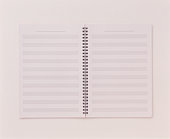
Home > Songwriting > 5 Powerful Tips
|
||||
5 Powerful Songwriting Tips on Piano
1. Don’t try to get the perfect song on the first try. No artist ever composes a perfect draft on the first attempt. Writers rigorously edit their words. Painters create a variety of sketches before landing on that masterpiece. The same is true for songwriters. Writing songs is a process, which means that you will gradually come up with ideas for melody, lyrics, and other song elements. Allow yourself to experiment with ideas, take a break, and then return to and improve what you have. 2. Know what kind of a mood you’re going for and find a melody and chords to match. Usually songs are based on feelings. Let the emotional inspiration for your song act as a guiding force for the decisions you make. If you want your song to present a somber, contemplative mood, then make sure you’re choosing a melody and chords that represent that. If you want your piece to be rebellious and upbeat, make sure your music reflects that. There’s nothing more awkward than having music and lyrics that contrast rather than complement one another. 3. Learn music theory – it seriously helps. Artists sometimes like to feel like they are “free spirits” that break the rules rather than follow them. Good for them. However, like it or not, good music is based on certain theoretically practices.
Instead of trying out every single chord you can think of at a certain moment, it is helpful to automatically know which chords will work with your melody and which chords also match the emotionally mood you’re attempting to broadcast. 4. Let songs “build up” to some climactic moment. Few songs work well when they are “flat,” meaning that there should be a gradually building of tension and emotion. Imagine a teacher trying to tell you something they think is exciting, but they never vary their monotone voice. You’ll tune out within 30 seconds. The same is true in music. Make each line feel like it is musically leading somewhere by adding rises and falls in your dynamics and emphases. As your song progresses, let the volume steadily increase until your song reaches an emotional climax that makes your audience feel exactly the same way you do about the subject. 5. Write from the heart. A musician can know all the theory there is to know, but that can’t replace the power and meaning behind a song written with emotion. Emotions drive our urge to communicate, and they are the fundamental inspiration behind all of music. Figure out what your heart wants to say, and then find a way to say it with the piano. These are only five simple but powerful songwriting tips for piano. Keep these ideas in mind the next time you sit down to write your next great song. A perfect combination of your heart and your head will guide your fingers to discovering the beautiful tunes that lie in wait inside of your piano’s keys.
Click here => http://pianoplayerworld.com/Songwriting-Science.html
| ||||
|
Although every attempt has been made to make information as accurate as possible, we are not responsible for any errors that may appear.
 Many songwriters dreams of composing that next big hit that inspires
millions. Others just want to find a perfect way of expressing what’s on their heart. Whatever your reason is
for wanting to find that ideal combination of melody and lyrics, harmony and chords, here are five powerful
songwriting tips for
Many songwriters dreams of composing that next big hit that inspires
millions. Others just want to find a perfect way of expressing what’s on their heart. Whatever your reason is
for wanting to find that ideal combination of melody and lyrics, harmony and chords, here are five powerful
songwriting tips for 
 Knowing the guiding
Knowing the guiding 



